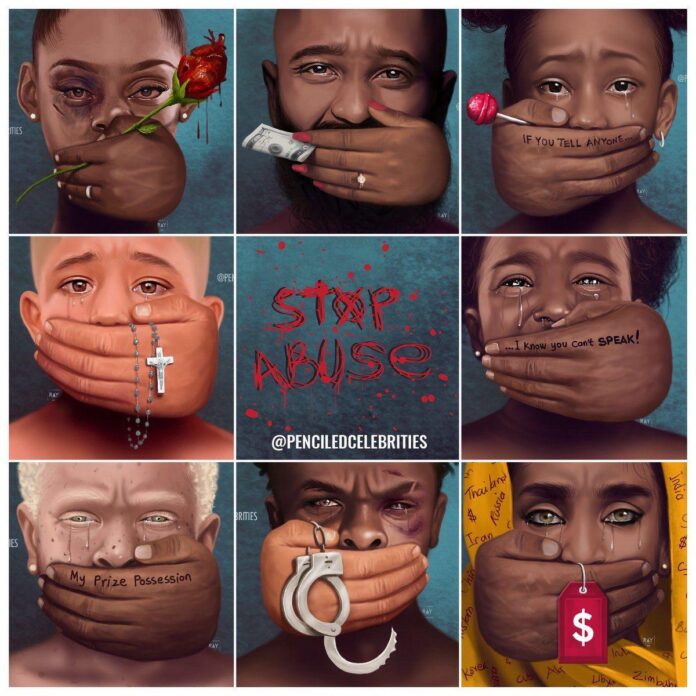Rape an unlawful sexual activity, most often involving sexual intercourse, against the will of the victim through force or the threat of force or with an individual who is incapable of giving legal consent because of minor status, mental illness, mental deficiency, intoxication, unconsciousness, or deception.
In many jurisdictions, the crime of rape has been subsumed under that of sexual assault. Rape was long considered to be caused by unbridled sexual desire, but it is now understood as a pathological assertion of power over a victim.
Until recently, very little attention has been paid to male victims of sexual abuse in childhood and male victims of rape and sexual assault in adulthood. Increasingly, researchers and clinicians are turning their attention to the particular problems encountered by male victims of abuse and sexual assault.
Recent changes in British Law have acknowledged the existence of rape of male victims and have highlighted the need to identify the number of male victims of sexual assault and plan appropriate clinical services.
A review of the literature reveals very little British empirical research on the psychological impact of rape upon male victims, although the studies that have been carried out, provide clear evidence of a wide range of psychological consequences, both in the immediate period following the assault and in the long-term.
The particular problems encountered by male victims mean that they are even less likely than female victims to report an assault. When they do seek help, the most pervasive themes emerge from the literature concerning their problems in reconciling their masculine identity with their experience of being a sexual victim.
Review of rape victims’ experiences seeking post assault assistance from the legal, medical, and mental health systems and how those interactions impact their psychological well-being suggests that although some rape victims have positive, helpful experiences with social system personnel, for many victims, post assault help seeking becomes a “second rape,” a secondary victimization to the initial trauma.
Most reported rapes are not prosecuted, victims treated in hospital emergency departments do not receive comprehensive medical care, and many victims do not have access to quality mental health services.
In response to growing concerns about the community response to rape, new interventions and programs have emerged that seek to improve services and prevent secondary victimization.
The contributions of rape crisis centers, restorative justice programs, and sexual assault nurse examiner programs are examined. Strategies for creating more visible and impactful roles for psychologists and allied professionals are also discussed.
Rural and underserved communities often struggle to provide access to specialized health care, including sexual assault care. Telehealth is an effective solution for providing access to an array of specialized health care services.
Prior sexual assault telehealth programs have provided evidence that telehealth is a feasible and acceptable solution. However, there is scant information about program development and considerations in the literature to guide those who may seek to implement a sexual assault telehealth program in their communities.
The Sexual Assault Forensic Examination telehealth (SAFE-T) Center-a nurse-led model for providing comprehensive, high-quality sexual assault care in rural and underserved communities recently implemented at three hospitals in rural Pennsylvania.
The program’s logic model describes how academic researchers partnered with multiple stakeholders to form a statewide advisory board and articulated a vision and mission for the SAFE-T Center that meets the needs of local communities.
This detailed description of collaborative partnership, coalition-building, program design and implementation can serve as a guide for hospitals and health systems seeking to implement telehealth programs to improve the care provided to survivors of sexual assault.
In some societies, victims of rape face the danger of ostracism or even death at the hands of relatives seeking to preserve their family’s honor and victims of abduction without rape may be treated in the same way.
The psychological reactions of victims of rape also vary but usually include feelings of shame, humiliation, confusion, fear, and rage. Victims often report a feeling of perpetual defilement, an inability to feel clean, an overwhelming sense of vulnerability, and a paralyzing feeling of lack of control over their lives.
Many are haunted by fear of the place in which the crime occurred, or of being followed, or of all sexual relationships. Others experience long-term disruption of sleep or eating patterns or an inability to function at work.
The duration of the psychological trauma varies from individual to individual; many feel the effects for years, even with considerable supportive therapy. Even when brought to trial, those charged with rape have a higher-than-average rate of acquittal, mainly because it is difficult to prove a crime for which there are usually no third-party witnesses and because the testimony of women often may be given less credence than that of men. Rape is thus both underreported and under prosecuted.
It is necessary to first establish that rape is not a behavioral or mental disorder, but a criminal offense. Although some rapists may have a psychological disorder, there is no such disorder that compels people to rape.
Evolutionary biologist Randy Thornhill and evolutionary anthropologist Craig Palmer believe in contrast to Hamby, that the primary motive behind rape is indeed sex.
They argue that rape is an adaptation; they point out that most victims are women of childbearing age, saying this supports their hypothesis that rape derives from a desire to reproduce.
In fact, most social scientists, psychologists and feminist activists are of the opinion that rape nearly exclusively has to do with issues of power and violence. They say that rape is not about lust but motivated by the urge to control and dominate, and that it could also be driven by hatred and hostility towards women.
Rapists often see women as sex objects who are there to fulfill men’s sexual needs. They tend to hold false beliefs, often described as rape myths. For instance, a rapist can believe that if a woman says no, she really means yes, and that she is just playing around or challenging him.
Antonia Abbey, a social psychologist at Wayne State University in the US city of Detroit, wrote that one repeat assaulter believed the woman “was just being hard to get.” Another believed that “most women say ‘no’ at first most times. A man has to persist to determine if she really means it.”
They described their rape experiences as “powerful,” “titillating,” and “very exciting.” One of the key characteristics shared by rapists and narcissists is a tendency to dehumanize others and there are several types of rapists.
There is the opportunistic rapist, who seizes any chance for sexual gratification, such as the loss of self-control on the part of their victim under the influence of alcohol.
Another type is a sadistic rapist, whose motivation is to humiliate and degrade victims. The vindictive rapist has anger and aggression focused directly toward women. Such a rapist believes he is permitted to sexually attack women because he feels he has been hurt, rejected or wronged by women in the past.
Rapists often deny having raped their victims and frequently try to justify their actions. Men who admit rape often try to find excuses for what they have done.
Sexual assault is an inexcusable act of violence and a criminal offense, unfortunately, a lot of the victims remain silent to avoid stigmatization and being blamed by society, while their rapists are free to look for another victim.
Katherine Gilyard is a journalist, writer, activist, and a survivor of sexual violence. After being sexually abused at age six, Katherine suppressed her traumatic memories; a common response for children who experience sexual abuse.
It was not until ten years later, during a tenth-grade book report, that she began to process what happened to her. For her assignment, Katherine read Speak, a novel written by Laurie Halse Anderson that follows a high school student who was sexually assaulted. This began to bring up painful memories of her past.
“We had to present the book reports and I realized, ‘I don’t know how to talk about this. I can’t even give a synopsis of the book and just be okay.” Katherine’s English teacher noticed something seemed off and asked about it.
Katherine then disclosed the abuse for the first time. Her teacher responded supportively and honestly.
“She asked about when it happened and told me she had to report it if I was still in danger.
…When I told her the details, she walked me through my options… Her talking through it with me was the first form of support I received.”
Two years later, as a freshman at Howard University, Katherine was sexually assaulted by a stranger who trespassed into her dorm room. Afterwards, Katherine immediately contacted her friends, who came over to her dorm. One friend got the director of the dorm, while another called the police.
“The dorm director asked me, ‘Well, what’s wrong with you?’ I told her, ‘A man just came in here and raped me,’ and she said, ‘What? How did that happen?’”
The rapist was able to enter Katherine’s dorm because no one was working the front desk to check IDs and no security guards were on duty during the daytime.
Despite this, Katherine says the dorm did not change security coverage in the weeks that followed and that she never received an apology or any form of accountability from the school.
The lack of empathy from authority figures only continued in the hours that followed the assault. City police came, and Katherine’s dorm was swirling with professionals following procedures.
For hours, Katherine sat in shock. “I was just sitting on the bed; my pants were not pulled all the way up; I had not moved.”
Police and dorm staff carried on around Katherine without acknowledging or explaining things to her. After six hours, Katherine was finally taken to the hospital.
At this point, however, she was frustrated and ready for it to be over, so she declined having a forensic examination. “I was so sick of people touching me and not explaining things to me. If I didn’t feel so forced, or if someone had explained it to me, then I would’ve had the exam.”
Insensitivity from the police made Katherine averse to working with law enforcement. Fortunately, the investigation ended quickly with the police arresting her assailant.
Katherine’s mother was very supportive during this process. She travelled to Washington, DC, where Katherine was in school, and stayed with her during the grand jury investigation.
Currently, Katherine is training to become a victim advocate, and she hopes to start a nonprofit one day for women of color who survive sexual assault. She is passionate about sensitivity training for professionals interacting with survivors across all industries.
“The first person at the scene should not be further traumatizing the survivor.” Her passion for greater sensitivity, in part, comes from her own negative experiences with the legal system.
As a young survivor, she found the legal process to be intrusive and often re-traumatizing. She was frequently contacted by the attorney for her own case and the cases of other survivors who had been assaulted by the same assailant.
“Every semester, I would get a call from the Assistant U.S. Attorney with an update that would totally derail my life.” Present day, Katherine is back in school while working as a journalist. Writing about public health, she finds herself drawn to certain stories: ones of people in need.
Adam had always enjoyed spending time with his uncle, and would often look forward to sleepovers when they could have extended time together. On one of these occasions when he was 14, their normal activities turned abusive.
He was confused by his uncle’s actions; nothing like this had happened before. For the next four years, Adam continued to struggle, both with the physical abuse and the emotional pain it brought him. “I took steps to prevent the pain, but a part of me thought that was how he loved me.”
Perpetrators of child sexual abuse will often use grooming tactics, like gift-giving, spending alone time, and building age-inappropriate relationships with children and teens to keep them silent about the abuse.
In Adam’s case, it was the chance to sneak cigarettes and attend expensive sporting events. The abuse had serious effects on Adam’s life including weight gain, an inability to maintain relationships, and suicidal thoughts.
The effects of sexual violence can be challenging to deal with, but with the right support they can be managed. They can be particularly challenging for men and boys who face unique challenges due to social norms about masculinity.
Adam also recalls questioning his own sexuality after the assaults. Many male survivors experience this uncertainty and doubt after sexual violence, especially if they experienced an erection or ejaculation during the assault.
Physiological responses like an erection are involuntary, meaning the survivor has no control over them. These physical signs are not an invitation for unwanted sexual activity and in no way condone an assault.
Adam did not report the assault or tell anyone from his family. He feared that he wouldn’t be believed and that the truth would destroy his family. “I think there’s a stigma attached to it that, ‘Oh, you’re a man, you should have been able to fend him off.’”
Years later, Adam finally opened up to his girlfriend, who encouraged him to talk to his parents. “The ironic thing was that I opened up to my parents on October 8, 2010, ten years to the day of the last sexual attack. They supported me unconditionally and distanced themselves from him.”
Today, Adam is currently working as an archivist at the Diocese of the Armenian Church of America. He enjoys spending time with his girlfriend, going to sporting events, watching TV, reading and just enjoying life.
It wasn’t easy to recover from the abuse, but Adam found that talking about what happened to a supportive network of friends and family helped him to heal.
“The experience I have had in recovering from the abuse is that he did not win. I have not allowed myself to be defined by the abuse.”
Adam is one of seven survivors featured in the RAINN Survivor Series.








































